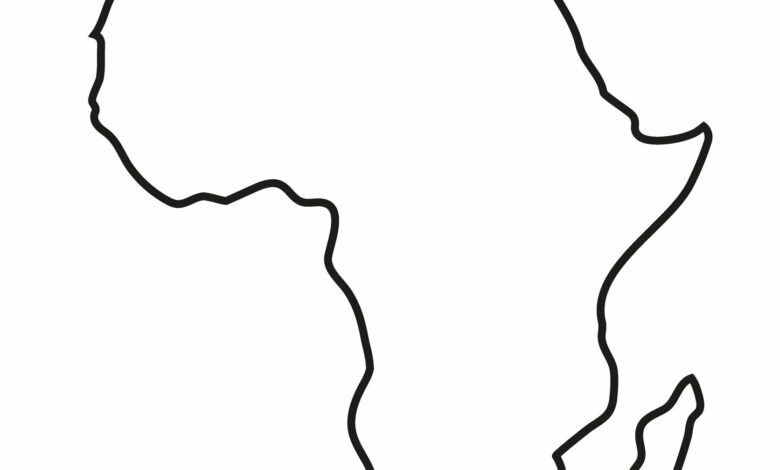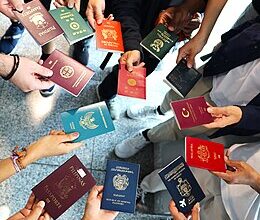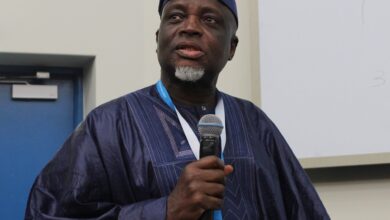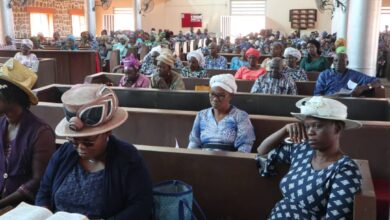Waves of Protests in Africa: A Fact-based Guide to the Causes, Key Players, and Demands

By: Ibraheem Muhammad Mustapha
Background
Protests have long been a common occurrence in various African countries, driven by a myriad of factors including political, economic, social, and even environmental concerns. Historically, these protests have often been responses to immediate triggers such as electoral fraud, governmental corruption, and austerity measures. However, they are also deeply rooted in long-standing issues related to governance, inequality, and human rights.
In 2024, this simmering discontent erupted into a wave of protests across the continent. These protests were interconnected, each influenced by local conditions but also by a broader continental movement for justice and reform. From Dakar to Nairobi, Kampala to Abuja, and Dakar and beyond, citizens took to the streets to demand accountability, better governance, and improved living conditions.
As a fact-checking platform dedicated to fighting misinformation in Africa, FactcheckAfrica recognizes the crucial role of accurate information in shaping public perception and policy. Hence, this article is to provide a clear, fact-based account of the protests, addressing the causes, key players, and demands involved as part of our commitment to combat misinformation and promote truthful reporting in Africa.
The Current State of Protests in Africa
Senegal: February 2024

Credit: DW News
The wave of protests began in Senegal in February 2024, triggered by then-President Macky Sall’s postponement of the country’s elections, which were initially scheduled for the 25th of February. Sall justified the postponement by citing electoral disputes that threatened the poll’s credibility. However, opposition lawmakers condemned this as an “institutional coup.”
In response to Sall’s announcement, Protesters took to the streets to voice their grievances. The police reportedly used tear gas against demonstrators, and the internet was shut down for at least 36 hours. The protests resulted in the deaths of at least three demonstrators.
In response to the unrest and a ruling by the Senegalese constitutional council declaring the postponement as ‘unlawful’, Sall reversed his decision to delay the elections. The ruling coincided with the release of many political detainees, including the current President Bassirou Diomaye Faye, who was released just over a week before the election.
Kenya: June 2024

A Kenyan police officer wearing riot gear telling protesters to move back during a protest in Nairobi. Credit. Getty Images
Kenya’s protests broke out on June 18, 2024, following the introduction of a finance bill that proposed raising or introducing taxes on daily items and services such as internet data, fuel, bank transfers, and diapers. This was in addition to a 2023 finance bill signed into law by President William Ruto, which had already been unpopular due to a tax on salaries for housing. The said 2023 bill was later declared ‘unconstitutional’ by Kenya’s court of Appeal.
The new bill that catalysed the July protest was seen as necessary to address Kenya’s approximately $80 billion in domestic and external debt, which accounts for nearly three-quarters of Kenya’s entire economic output, according to a recent report from the United Nations Conference on Trade and Development. Around $35 million of that debt is owed to foreign creditors, primarily China and powerful international groups like the World Bank and the International Monetary Fund (IMF). Failure to service this debt could have severe repercussions, including more unemployment, increased poverty, and worse overall outcomes for Kenyans.
Protesters were infuriated by the additional financial burdens, especially given the ongoing issues of corruption, cronyism, and youth unemployment. The protest, which took a violent turn in the early afternoon of June 25, had since led to the deaths of at least 60 people, 413 people injured, 1,376 arbitrarily detained and 66 abducted or are missing in connection with the protests according to the the Kenya National Commission on Human Rights (KNCHR). Following sustained pressure from demonstrators, President William Ruto retracted the bill and announced a cabinet shake-up, including the dismissal of the attorney General. Despite this, calls for Ruto’s resignation continued as protesters remained dissatisfied with ongoing corruption and police brutality.
Uganda: July 2024

Credit: AP News
By July, the wave of protests had reached Uganda. Citizens attempted to march to parliament in the capital, Kampala, on the 23rd and 25th of the month. The physical protests followed an online campaign under the hashtag #UgandaParliamentExhibition, which relied on leaked official documents to expose corruption profiles in the country. The campaign and subsequent protests were driven by anger over widespread government corruption, with Uganda losing an estimated Sh. 10 trillion ($2.7 billion) in public funding to graft annually, according to the Inspectorate of Government (IG).
Protesters demanded audits of MPs’ lifestyles and the resignation of lawmakers involved in corruption scandals, according to a newspaper front page shared on social media platform X by Ugandan Radio host and presenter, Faiza Fabz. At least 45 people have been detained as reported by Al-Jazeerah.
Nigeria: August 2024

Credit: AL-Jazeerah
On August 1st, Nigerians took to the streets to protest the country’s severe economic imbalance, with the movement gaining support through an online campaign tagged #EndbadGovernanceinNigeria. The protests come as Nigeria grapples with its worst cost-of-living crisis in decades, fueled by soaring inflation rates that have reached over 34%, the highest level in nearly 30 years.
Credit :Reuters Graphics
The surge in prices has been driven in part by policy decisions made by President Tinubu’s administration. Since President Tinubu’s announcement on 23rd of May 2023 to remove fuel subsidies, fuel prices have tripled at the pumps and the value of the naira has significantly depreciated following the decision to float the currency, resulting in it becoming the worst-performing currency globally so far this year. Food inflation has skyrocketed well above 40%, the highest in nearly three decades, while unemployment rates continue to rise, exacerbating the economic challenges facing the nation.
As the protest enters its third day, demonstrators are calling for a range of reforms and actions from the government. Their demands include reducing the cost of living, which has been severely impacted by recent economic policies, as well as addressing the escalating insecurity situation, particularly the rise in kidnappings for ransom. Furthermore, protesters are seeking comprehensive governance reforms, including electoral and judicial reforms, as well as constitutional amendments.
Ghana: July 31, 2024
Ghana, Nigeria’s fellow West African state, is also warming up for protests. On July 31, 2024, a high court banned civil society groups from holding a six-day protest at Black Star Square in Accra, which was scheduled to take place from July 31 to August 6. The organizers claimed the protests would draw over two million people to demand more action from President Nana Akufo-Addo on corruption and living conditions, as well as to protest delays in signing an anti-LGBT bill into law. This comes nearly 10 months after the #OccupyJulorbiHouse protest in Accra, which drew attention from September 21 to 23, 2023, as citizens rallied for political change and economic reform.
Conclusion
The recent wave of protests sweeping across Africa demonstrates the people’s unyielding desire for change. These demonstrations, sparked by various political, social and economic challenges, bring to the forefront critical issues that resonate deeply across the continent. To grasp the complex socio-political dynamics at play, it is crucial to understand the underlying causes, key players, and demands driving these movements. At FactcheckAfrica, we remain dedicated to providing accurate and reliable information, debunking misinformation, and fostering a deeper understanding of these significant movements that are shaping the future of the continent.
Edited by Habeeb Adisa




